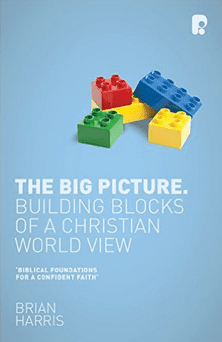 “According to Answers.com, a human being consists of the following elements: oxygen (65%), carbon (18%), hydrogen (10%), nitrogen (3%), calcium (1.5%), phosphorous (1.0%), potassium (0.35%), sulfur (0.25%), sodium (0.15%), magnesium (0.05%), along with copper, zinc, selenium, molybdenum, fluorine, chlorine, iodine, manganese, cobalt, iron (0.70%), plus trace amounts of lithium, strontium, aluminum, silicon, lead, vanadium, arsenic, and bromine. [There are more elements in Green Bay Packer fans, but that’s for another day.] In an atheistic conception of human beings, they are nothing more than a mass of elements that has slowly evolved into a living organism through seemingly random [not totally the right word] and purposeless forces. On such an account of humankind, existence is accidental and meaningless, life is meaningless, death is meaningless, and all attempts to find or create meaning prove be in the end, well, meaningless.” So Mike Bird in Evangelical Theology, and this rather bleak sketch sets the stage for his consideration of what and who humans are in a Christian, evangelical theological orientation.
“According to Answers.com, a human being consists of the following elements: oxygen (65%), carbon (18%), hydrogen (10%), nitrogen (3%), calcium (1.5%), phosphorous (1.0%), potassium (0.35%), sulfur (0.25%), sodium (0.15%), magnesium (0.05%), along with copper, zinc, selenium, molybdenum, fluorine, chlorine, iodine, manganese, cobalt, iron (0.70%), plus trace amounts of lithium, strontium, aluminum, silicon, lead, vanadium, arsenic, and bromine. [There are more elements in Green Bay Packer fans, but that’s for another day.] In an atheistic conception of human beings, they are nothing more than a mass of elements that has slowly evolved into a living organism through seemingly random [not totally the right word] and purposeless forces. On such an account of humankind, existence is accidental and meaningless, life is meaningless, death is meaningless, and all attempts to find or create meaning prove be in the end, well, meaningless.” So Mike Bird in Evangelical Theology, and this rather bleak sketch sets the stage for his consideration of what and who humans are in a Christian, evangelical theological orientation.
Think about these questions today: Are we more than glorified chimpanzees? What are we? Who are we?
The Christian view of humans is crucial to the entire faith. We are made in God’s image, but what does that mean? Is this substantive (Calvin, Luther, etc), relational (Brunner, Barth) in imaging the Triune God, functional (Sands, et al) in ruling this earth or royal, which varies the functional to the idea that we are designed to rule the earth (Middleton)? Here christology comes into play: Christ is the true image of God and we are reflected and reflecting images.
A big issue today is if we are dualistic or monistic? Are we body and soul (spirit) or embodied souls or, as others would put it, ensouled bodies? Bird disagrees with Joel Green and thinks Green’s case is undone by the conscious presence of dead people in the intermediate state. Bird affirms a “psychosomatic unity of body and soul” (665).
Theology has focused traditionally on the problem of humanity. Bird sees the problem as the choice to rebel against the sovereignty of God. Ruination, he calls it, can be expressed in terms like condemned, estranged, trapped, defiled, enslaved, and dead. He affirms Plantinga’s “culpable shalom-breaking” (669). Bird thinks “sin” no longer works in our world; we need to use the word “evil.”
Bird affirms original sin in Adam and deserving punishment on that basis alone. And humans, too, are each sinful.
Finally, he thinks the “best theodicy” is the story of God entering our world in Christ to die our death and to bring us life.











